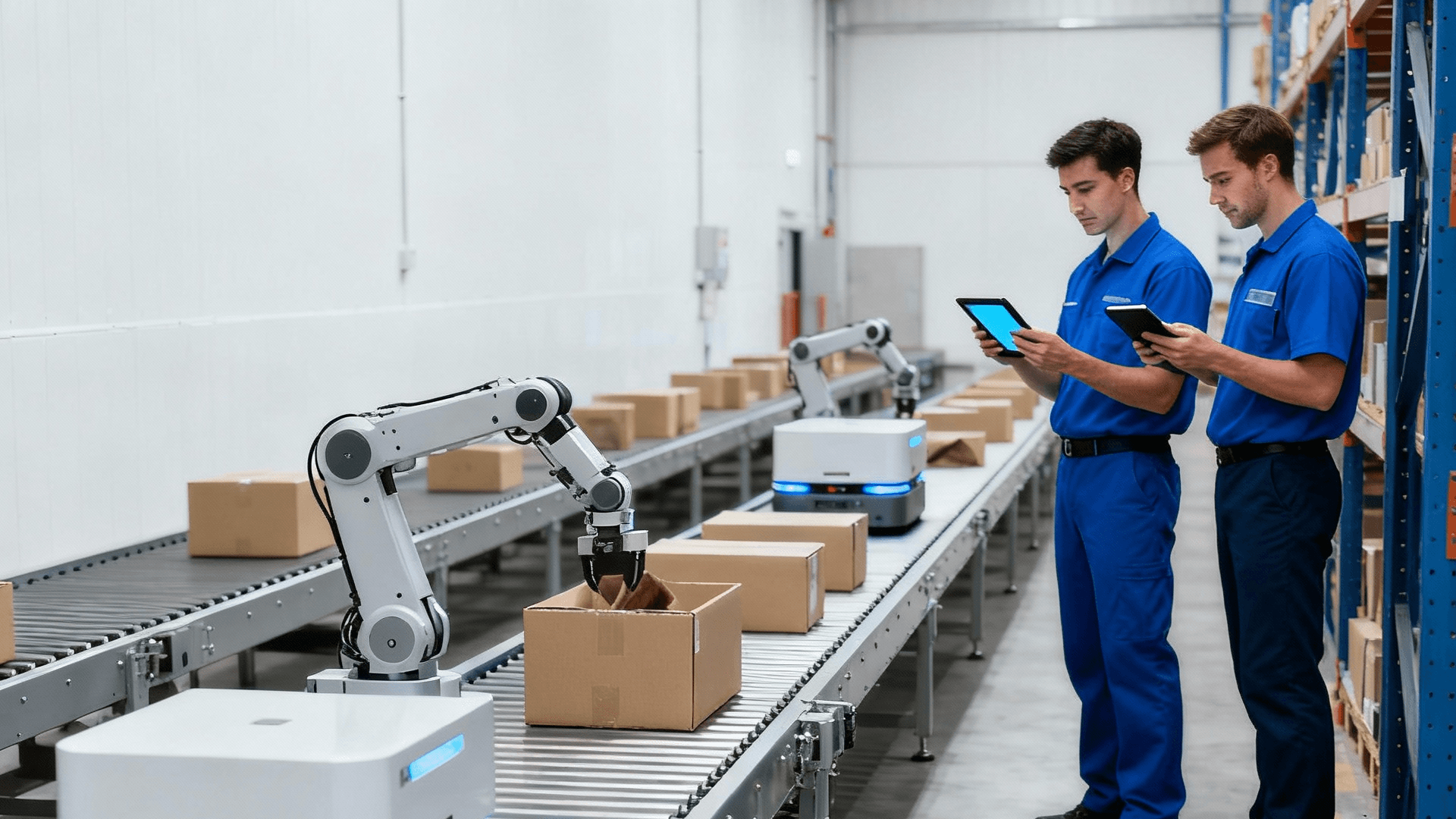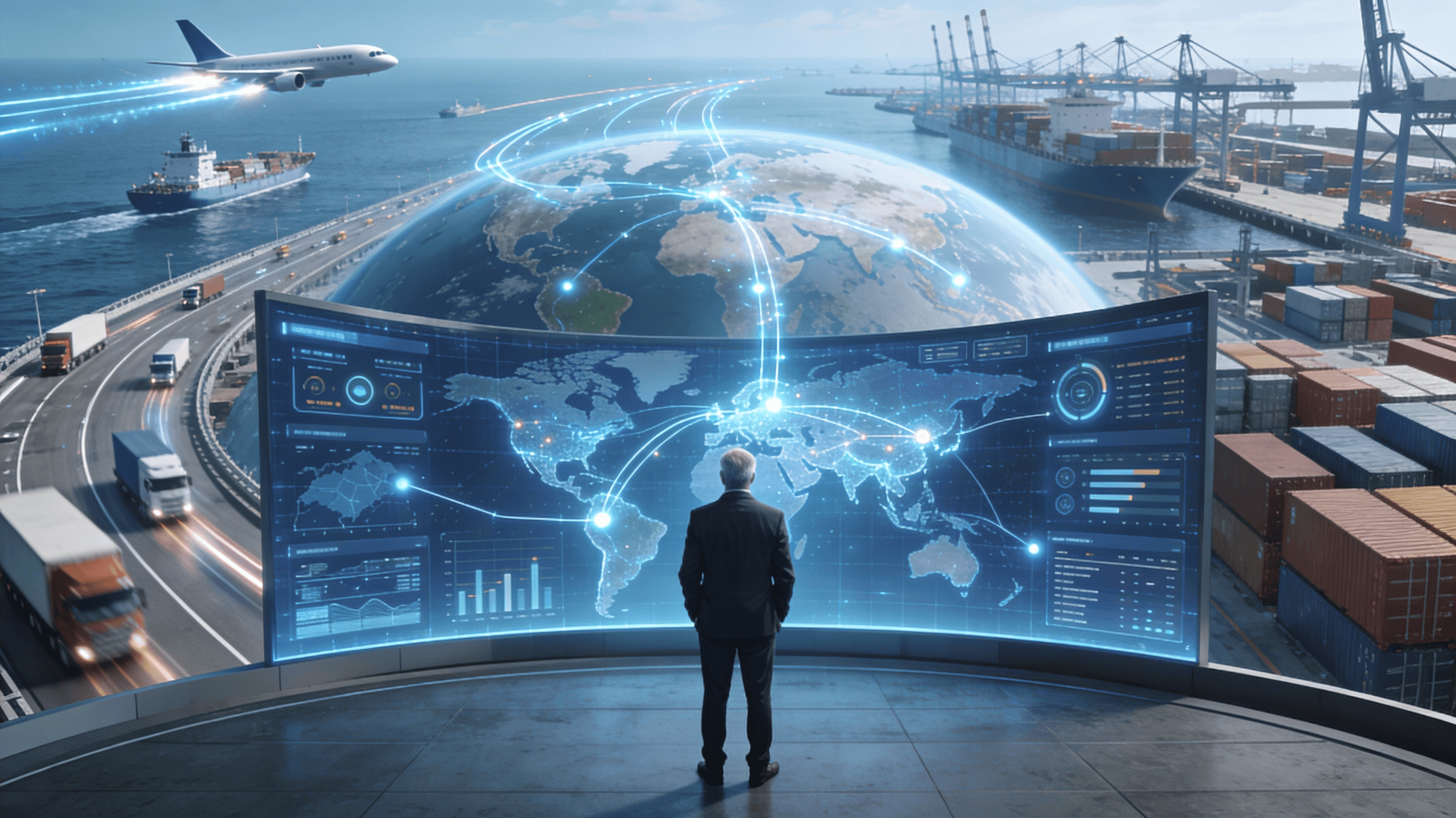What’s the Difference Between AI, Machine Learning, and Automation in a Warehouse?
Saturday, 20 Sep 2025
|
Modern warehouses are evolving fast, shaped by technologies that promise faster, smarter, and more reliable operations. Yet, terms such as "automation," "machine learning," and "artificial intelligence" are often used interchangeably, creating confusion at the leadership level. Understanding the distinctions is key for making smart technology investments that yield the best business outcomes.
This blog breaks down these technologies in the context of logistics warehouses and shows how forward-thinking companies are already leveraging them.
Automation: Where Rules Run the Floor
Automation is the reliable workhorse executing predefined tasks. Think of conveyor belts controlled by programmable logic controllers (PLCs) or scan-to-pack macros on packaging lines—these perform repetitive actions with high precision as programmed.
- Scope: Focus on routine, repetitive tasks or specific microprocesses
- Data Usage: Minimal, using deterministic inputs like sensor signals
- Change Handling: Requires manual reprogramming to adapt to new workflows
While automation boosts speed and accuracy for stable processes, it lacks the flexibility needed for dynamic environments.
Machine Learning: Data-Driven Adaptability
Machine learning adds a layer of intelligence by using historical and real-time data to recognize patterns and improve decision-making. For example, ML models can forecast inventory demand or estimate pick times, adapting as conditions change with retraining.
- Scope: Optimizes specific decisions within broader processes
- Data Usage: Trains on historical and live data sets
- Change Handling: Adapts through retraining as business patterns evolve
Machine learning supports warehouses in handling variability while improving accuracy without full human intervention.
Artificial Intelligence: A Brain for the Fulfillment Center
Artificial intelligence orchestrates across multiple processes, integrating diverse data sources—inventory, workforce, orders, external factors—to make complex decisions dynamically. AI-powered systems manage labor allocation, predict exceptions, and optimize warehouse throughput under shifting conditions.
- Scope: Cross-process optimization and real-time control
- Data Usage: Fuses multimodal data into decision policies
- Change Handling: Simulates scenarios and replans proactively
AI systems represent the pinnacle of warehouse intelligence, enabling smart, resilient operations.
How debales.ai Helps Logistics Leaders Unlock AI Potential
Navigating from automation through machine learning to full AI orchestration is a journey many logistics businesses aim for but find challenging. debales.ai specializes in simplifying this evolution by providing AI agents designed specifically for logistics challenges.
With debales.ai, warehouses can automate routine workflows seamlessly while layering on predictive capabilities and advanced intelligence—including:
- Automating repetitive operational tasks such as shipment tracking, freight quoting, and customer communication (discover more about AI in logistics)
- Accessing real-time dashboards to monitor KPIs and make data-driven decisions
- Deploying predictive models that reduce delays and improve workforce efficiency
- Scaling communication with AI-powered virtual assistants that handle inquiries 24/7
Our platform bridges automation and AI, offering measurable ROI and fast implementation tailored to your existing systems.
Why This Matters for Modern Warehouses
Choosing the right technology mix means gaining:
- Greater operational efficiency and lower costs
- Increased flexibility to respond to market fluctuations
- Improved customer satisfaction through reliable, transparent service
- Scalable growth without proportional increases in overhead
Modern supply chains demand not just automation but intelligent orchestration, and robust AI solutions transform ordinary warehouses into competitive powerhouses.
Looking Forward
The future of logistics belongs to warehouses that think, adapt, and optimize continuously. Exploring innovations like digital twins in logistics and AI-powered control towers will further elevate intelligence across supply chains.
If your business is ready to embrace AI’s transformative power with hands-on support and practical systems, debales.ai is here to help.
Ready to turn your warehouse into an intelligent operation?
Discover how debales.ai tailored AI solutions can help navigate the journey from automation to artificial intelligence—simplifying complexity and unlocking new levels of efficiency.
Book a demo with debales.ai today and experience smarter, more adaptive warehouse operations.

